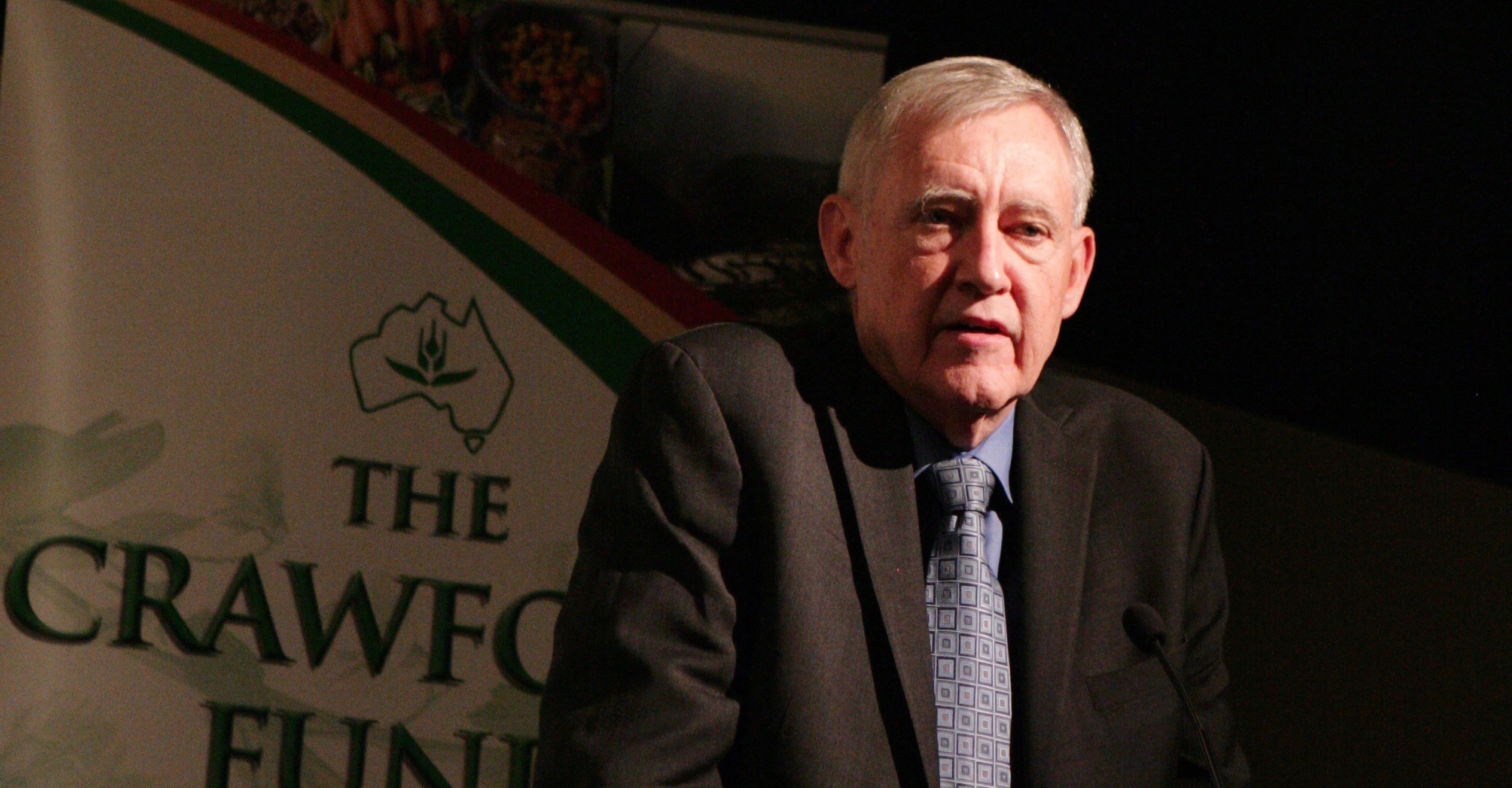

Biofortification—A Nutritional Solution for the World
August 15, 2016

The Crawford Fund assists with visits and public awareness for VIP international visitors to Australia to help spread the word of the positive impact of their work in agriculture for development. Most recently, we are pleased to have been able to assist with another visit by Dr Howarth (Howdy) Bouis, Director and Founder of HarvestPlus, who was last assisted with his visit in Australia in 2012 as well as being interviewed by journalists in India who were on a Crawford Fund ‘seeing is believing’ visit in 2011. For his August visit, he comes with the additional title of World Food Prize winner.
Malnutrition caused by a lack of vitamins and minerals in the diet, commonly known as ‘hidden hunger’, affects more than 2 billion people around the world, especially in poorer nations. Dr Bouis is bringing agriculture and nutrition science together to fight hidden hunger and provide long-term benefits to the undernourished.
Dr Bouis is winner of this year’s World Food Prize, a prize widely known as the ‘Nobel Prize for Agriculture and Nutrition’. The award was given in recognition of his 25 years of pioneering work in agriculture and nutrition to fight against the global problem of micronutrient deficiencies—through biofortification.
“Biofortification breeds critical vitamins and micronutrients directly into staple crops to improve their nutritional quality, through agronomic practices, conventional and more modern plant breeding,” explained Dr Bouis at a panel discussion on biofortification organised by the Fund, and co-hosted with ACIAR and the new National Rural Press Club at the National Press Club in Canberra.
Dr Bouis led a panel with Australian collaborators to discuss the nutrition and development impacts of biofortification, globally and in our region. The discussion also covered the breeding programs underway, and the ultimate goal to make biofortification the nutritional solution for the world. Agriculture that is both nutrition and climate-smart will improve global food security and benefit economies.
“Australia and Australian scientists have played an important role in the development of new varieties that are climate-smart, high-yielding, and packed with micronutrients.
“Our basic food systems have to be optimized to provide the greatest amount of nutrients per square foot that can be produced sustainably, especially in the face of climate change,” Dr Bouis said.
Biofortified crops, including iron- and zinc-fortified beans, rice, wheat, and pearl millet and vitamin A–fortified cassava, maize, and orange-fleshed sweet potato, are now being tested or released in over 40 countries. It has already improved the health of millions of people in Asia, Africa and Latin America, with the potential to increase to several hundred million in the coming decades.
The panel included scientists from Adelaide, Melbourne and Flinders Universities, and partner World Vision Australia. Dr Bouis’ visit to Canberra also included a roundtable discussion with DFAT and a lunch hosted by ACIAR.
You can read more about Dr Bouis, HarvestPlus and biofortification here. The extensive set of TV, radio and print interviews organised by the Fund helped further spread the word of the impact of biofortification and the good news of Dr Bouis’ World Food Prize win (see below).
MEDIA COVERAGE
National TV
- African pop music video shines light on ‘hidden hunger’: ABC TV News Breakfast and Twitter
National Radio
- Country Breakfast Features 20 August: Radio National Country Breakfast
- World Food Prize recognises efforts to improve developing world nutrition, by making crops more nutritious: ABC National Rural News
- Close Up – Dr Howarth Bouis:
National Commercial Rural News - Upping the vitamin & mineral content of staple plants to tackle “hidden hunger”: Radio Australia Pacific Beat
- Magic beans – Biofortification boosting health in developing countries: National Community Radio “The Wire”
Print Coverage
“Biofortification’s altruistic global goal”:




 0
0